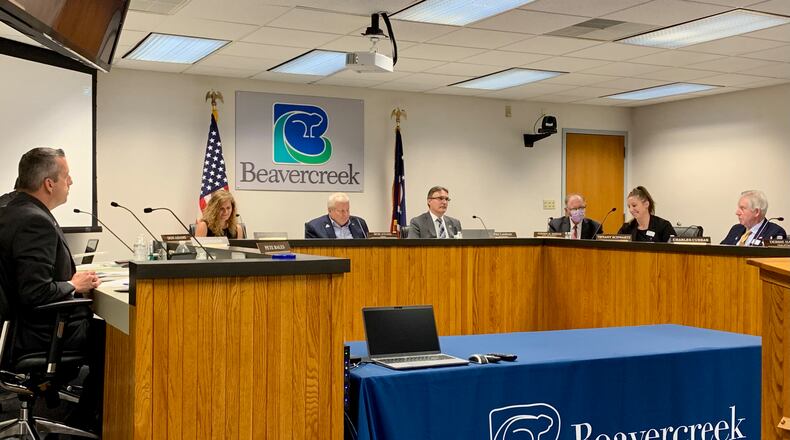Voters also will consider a 2.5-mill police levy that would pay to hire five additional police officers, purchase and maintain equipment and provide additional long-term capital funding for a police facility. If approved, property taxes would increase by $87.50 per $100,000 of home value beginning in 2023.
Beavercreek voters in May rejected a proposal to institute a city income tax, the third such refusal in a decade. Had it passed, the income tax request would have been used to hire the same five service workers and five police officers, and would have replaced five existing property tax levies totaling 8.1 mills.
Mayor Bob Stone said that the city has received complaints about streets and parks that prompted the necessity of more workers.
“When we proposed the income tax, that was the level of service that the people wanted,” Stone said, referring to some residents’ requests. “The people have decided they would rather fund the city in a different route, so we are keeping pace with what we’ve said all along that we needed.”
Council considered two options for the street levy, one at 1.75 mills that would maintain current levels of service, and the accepted 2.15 that would hire the additional five workers. Beavercreek has 577 lane miles of streets over 27.7 square miles of area, according to city data, and repaves six or seven miles per year, a number that should be doubled, officials say.
“Our city’s expenses are outpacing revenue, which is why the city is proposing these levies,” Stone said. “Placing these levies on the November ballot empowers city residents to help determine the funding and service levels of Beavercreek’s streets and police department. Beavercreek residents made it clear to council in May they did not want an income tax; therefore, we are presenting these levies to our citizens for consideration.”
Council members considered three options for the police levy at their regular meeting Monday — 1.25 mills to maintain current operating levels, 1.8 mills that would hire five additional officers, and the selected 2.5 mills that would do all of the above while providing long-term funding to improve police facilities.
Stone said that council has not yet decided what that facility will be, but said the current building is inadequate for what the city of Beavercreek needs long-term.
“(The 2.5 mills) has that extra millage built in, so that the five new officers, the current officers, and those that will come in the future will be able to operate from,” Stone said. “Council has not decided that we will have a new facility. That day may come, but there needs to be revenue for it.”
Stone added that having proper facilities would make Beavercreek more attractive to police officers looking for work.
“Everyone is having a hard time hiring police officers. This is not local, this is everywhere,” Stone said. “So why would we want to have a facility that is not adequate hurt our ability to hire?”
The last time Beavercreek voters passed a levy for additional funding for the police department was in 2014. The last street levy approved by voters was in 2016.
About the Author

